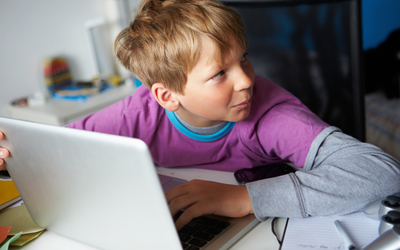Although we read about it a lot in the papers and on the TV, the chances of your child being harmed by an adult are very small. However, no parent wants their child to be at risk, so you will no doubt be looking for ways to ensure their safety when they’re online. People who abuse children come from all classes, professions and can be any age or gender. It’s common for victims of abuse to know their abuser – it may be a family friend or a family member. Once they have been abused, they will often be threatened and blackmailed in order to keep their silence. It’s vital that you take action if you think your child or another child is being abused. The NSPCC helpline offers advice for people who are concerned about a child’s welfare, or you can speak to your local police for advice. Abusers often groom the children they abuse, which means getting to know the child and gaining their trust before abusing them – this doesn’t just happen online, but can happen in person as well. Abusers usually put themselves in places or positions where they can be close to children, such as playgrounds or parks where young children play and hang out with friends. This is something to be aware of if your child plays in local areas with their friends.
The best thing you can do for your child, first and foremost, is to make them feel loved and valued. Give them the confidence to believe in themselves and their judgement, and educate them on safety and how to act with people they don’t know or may not trust. Be cautious when an adult becomes extremely interested in your child, such as if they’re very keen to babysit them all the time or to take them out on their own. You should also ensure that your child knows that they can talk openly with you, and that you’ll believe whatever they tell you – children very rarely lie about abuse, so if they flag an issue up to you, you should take it seriously. Give your child a curfew, so that you can know where they are and what time they will be out until. Make sure that your child doesn’t go out alone, and that you pick them up after they’ve been out to meet their friends so that you know that they’ve got home safely. It’s also important that you teach your child that it’s safer to hang out in a large group rather than on their own or with just a couple of people. If they walk or get the bus to school without you, encourage them to stay in public areas where others can see them, or to walk with friends.
Children use the internet regularly now, but you don’t need to panic and ban your kids from using it out of fear that they’ll talk to strangers. The best way to ensure their safety is to educate them about how to use the internet properly. This means teaching them about the dangers of online grooming, about avoiding social networks and chat rooms where predators groom children, and to monitor the sites that they use. You can use a programme to stop your children accessing porn or chat room sites, to keep them as safe as possible. Discourage your children from posting pictures of themselves online, and if they make a friend online who they later want to meet up with don’t ever let them do so without an adult chaperone.
